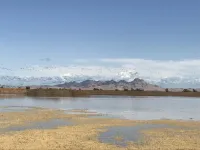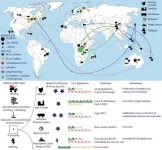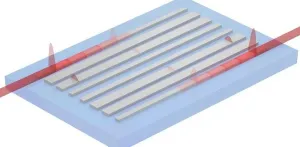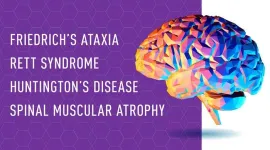(Press-News.org) A new publication from a team of scientists at USGS, Point Blue Conservation Science, and Conservation Biology Institute shows how knowledge coproduction - the collaborative creation of actionable information by scientists, resource managers, and policy makers - can help identify viable conservation options for a dynamic ecosystem with a complex web of stressors.
The wetland habitats of California’s Central Valley support millions of migratory birds each year and are an important part of the Pacific Flyway, a bird migration route that spans from South America to the Arctic Circle. There are less than 10% of historical wetlands remaining.
In this region where water is highly managed to serve multiple uses, resource managers must plan the complex and carefully-timed movements of water onto the landscape to create seasonal wetlands and associated food, made possible in part by the cooperation of farmers in the region, in anticipation of the needs of the migrating birds. Now enter climate change, which is ushering in an era of more extremes, and we have what is known as a “wicked” problem.
In such a situation it can seem impossible to know which actions are worthwhile to take, leading to decision paralysis or wasted efforts. Cooperation based on a shared understanding of the options is critical, and achieving those requires communication, buy-in, and trust.
The Study
The authors of the publication “Knowledge coproduction on the impact of decisions for waterbird habitat in a changing climate” dove deep into this process, explored what worked and why, and explain the new knowledge created together with the stakeholders and how it guides the resource management process.
To bring climate change into the picture, the team used future narratives describing four highly divergent climate change-environmental management scenarios that wetland managers could likely face, converted them into computer models that envision what happens when different actions are taken under the different scenarios. The scenarios as well as the design of the models were coproduced with the stakeholders, making it a transparent process for them as well as offering the opportunity for a wide range of expertise to be incorporated. Representatives from the water management, planning, and conservation sectors were engaged throughout the four-year study, designed to investigate when and where management actions make a difference and when climate overrides these actions.
Results
The study showed that actions to restore wetlands and prioritize their water supply created habitat outcomes resilient to climate change impacts particularly in March, when habitat was most limited, and that land protection combined with management can increase the ecosystem’s resilience to climate change.
Uptake and use of this information was influenced by the roles of different stakeholders, rapidly changing water policies, discrepancies in decision-making time frames, and immediate crisis of extreme drought.
END
Knowledge coproduction: Working together to solve a complex conservation problem
2023-06-07
ELSE PRESS RELEASES FROM THIS DATE:
UW research shows real-world value of strategy courses for MBA students
2023-06-07
More than 100,000 Master of Business Administration students graduate each year in the United States, and all of them take at least one strategy course. Even so, little is known about the effects of the degree’s most popular course offering.
Strategy courses typically focus on frameworks and cases that develop decision-making abilities for eventual MBA graduates, who make up most associates and partners at leading consulting firms, as well as 40% of the chief executive officers of publicly traded firms in the U.S. A new University of Washington study, published online June 5 ...
Measuring greenhouse gas from ponds improves climate predictions
2023-06-06
ITHACA, N.Y. – Shallow lakes and ponds emit significant amounts of greenhouse gases into the atmosphere, but emissions from these systems vary considerably and are not well understood.
Now, a new Cornell University-led study measures methane and carbon dioxide emissions from 30 small lakes and ponds (one acre or less) in temperate areas of Europe and North America, revealing that the smallest and shallowest bodies of water exhibit the greatest variability over time.
The paper marks an important step toward calibrating climate models so they better predict emissions from inland waterbodies, and it points to the need to study small waterbodies more closely.
“This ...
Cobalt mineralogy at the Iron Creek deposit, Idaho cobalt belt, USA: Implications for domestic critical mineral production
2023-06-06
Contributed by Laura Fattaruso, GSA Science Communication Fellow
Boulder, Colo., USA: A new study published in Geology evaluates the potential for cobalt extraction from the Idaho Cobalt Belt (ICB) of east-central Idaho, using a detailed study of the Iron Creek deposit. The ICB hosts the second largest known domestic resource of the critical mineral cobalt, one of the key ingredients in many rechargeable batteries needed for the green energy transition. Demand for cobalt is projected to increase more than 500% by 2050. Roughly 70% of the cobalt mined globally is from the Democratic Republic of the Congo, where mining practices have been criticized for human rights violations including ...
Predictive models show wildlife managers where to find destructive feral swine
2023-06-06
UNIVERSITY PARK, Pa. — Feral swine are considered one of the top invasive species of concern in North America because of the damage they do to agricultural and natural systems. To best manage them, resource management agencies need to know more precisely where and when to implement control methods. A new study by a Penn State-led research team developed a method to help guide control efforts in the Great Smoky Mountains National Park.
Descended from wild European boars imported centuries ago that bred with escaped domestic pigs, feral swine cause widespread damage to ecosystems by wallowing ...
Revolutionizing optical control with topological edge states
2023-06-06
Nanophotonics and topology have gained significant interest due to the unique properties they offer. One area of focus is the investigation of topological edge states (TESs). These states have captured widespread attention because they are very resistant to errors and imperfections. Arising from topologically nontrivial phases, TESs provide a powerful toolkit for the architectural design of photonic integrated circuits. TES transport has led to the discovery of various intriguing optical effects and applications, including directional couplers, one-way waveguides, mode-locked waveguides, ...
Research to develop new rare disease therapies underway at The Jackson Laboratory
2023-06-06
Researchers led by Cathleen Lutz, Ph.D., are using an exciting new method, preclinical genomic editing, to develop safe, effective therapies for rare diseases and bring them to the clinic.
Unfortunately, the translation of the accumulated knowledge to safe and effective therapies has lagged. There are many reasons to predict that the situation is changing for the better, however, as powerful new gene-based therapies succeed in clinical trials and receive FDA approval.
Therapeutic strategies such as gene replacement and gene modulation (e.g., blocking protein production with anti-sense oligonucleotides) are at the forefront of the recent progress. ...
Elizabeth Anderson and Alondra Nelson win 2023 Sage-CASBS Award
2023-06-06
Sage and the Center for Advanced Study in the Behavioral Sciences (CASBS) at Stanford University are pleased to announce Elizabeth Anderson and Alondra Nelson as winners of the 2023 Sage-CASBS Award.
Established in 2013, the Sage-CASBS Award recognizes outstanding achievement in the behavioral and social sciences that advances our understanding of pressing social issues. It underscores the role of the social and behavioral sciences in enriching and enhancing public discourse and good governance. Past winners of the award include Daniel Kahneman, psychologist and Nobel laureate in economic sciences; Pedro ...
Study: Doing good for others is good for children’s and teens’ mental, physical health
2023-06-06
Children and teenagers who volunteer tend to flourish mentally and physically, according to a new study from UTHealth Houston.
The study, led by Kevin Lanza, PhD, assistant professor of epidemiology, human genetics, and environmental sciences at UTHealth Houston School of Public Health, was published recently in JAMA Network Open.
Overall, the research team found that youths who had volunteered in the past year were in better physical health, had a more positive outlook on life, and were less likely to have anxiety, depression, or behavioral problems compared to their peers who did not volunteer.
“These study results bring optimism that youth volunteering could be ...
Health equity is the focus of LBGTQ+ Pride Month celebrations across the country
2023-06-06
DALLAS, June 6, 2023 — According to a study recently published in the Journal of the American Heart Association, lesbian and bisexual women in France had poorer heart health than heterosexual women, a finding that could be attributed to discrimination and other stressors faced by the LGBTQ+ community. In support of Pride Month, the American Heart Association, a global force for longer, healthier lives for all, is promoting awareness and health education for all people across the spectrum of diversity, including those who identify as LGBTQ+.
For more than 50 years, the LGBTQ+ community has spent the month of June ...
Order in chaos: Atmosphere’s Antarctic oscillation has natural cycle
2023-06-06
HOUSTON – (June 6, 2023) – Climate scientists at Rice University have discovered an “internally generated periodicity” — a natural cycle that repeats every 150 days — in the north-south oscillation of atmospheric pressure patterns that drive the movement of the Southern Hemisphere’s prevailing westerly winds and the Antarctic jet stream.
“This is something that arises from the internal dynamics of the atmosphere,” said Pedram Hassanzadeh, co-author of a study about the discovery in the open-access journal AGU Advances. “We were playing with some new equations that we had derived ...




